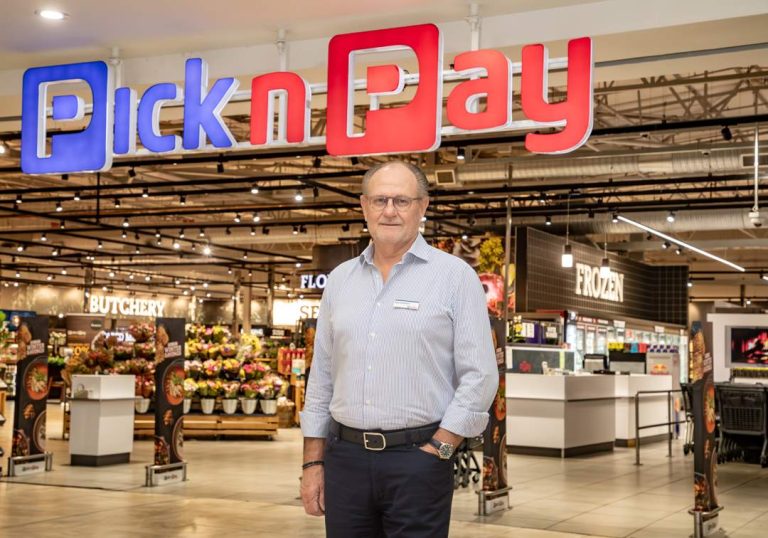The chief executive of Pick n Pay, South Africa’s prominent supermarket chain, has issued a stark warning about the unchecked proliferation of online gambling, describing it as a force that is spiralling beyond reasonable bounds. In a recent address to investors, Sean Summers highlighted how this burgeoning industry is siphoning vast sums from the nation’s economy, effectively vacuuming up disposable income that could otherwise support essential household spending. According to News24, Summers pointed to figures indicating that around R70 billion had been extracted from South African consumers in the previous financial year alone, underscoring the scale of the problem in a country already grappling with economic pressures.
This substantial drain, Summers argued, is not merely a financial statistic but a direct threat to the vitality of retail sectors like groceries, where families are increasingly compelled to tighten their belts. He drew a pointed parallel to the historical response to tobacco marketing, suggesting that authorities should contemplate equally decisive action against gambling promotions. As reported by Hypertext, Summers advocated for a comprehensive prohibition on such advertising, much like the blanket restrictions imposed on cigarette campaigns decades ago, to stem the tide of what he termed a societal malaise.
The context for these concerns is rooted in the explosive growth of the gambling sector across South Africa. Official data from the National Gambling Board reveals that gross gambling revenue reached R74 billion in the 2024-2025 financial year, marking a significant uptick from prior periods and reflecting the sector’s rapid expansion. SBC News notes that this figure represents a 25.7 per cent increase from the previous year, with online platforms playing a pivotal role despite operating in a regulatory grey area. Under current legislation, online gambling remains prohibited, yet the influx of both domestic and international operators has evaded stringent oversight, leading to a proliferation of advertisements that permeate everyday life.
These promotions are ubiquitous, adorning sports stadiums, sponsoring major tournaments, and flooding social media feeds with enticements that promise quick fortunes. Summers emphasised how such pervasive marketing preys on vulnerable individuals, particularly those facing financial hardship, fostering a cycle of addiction and debt that ripples through communities. This view aligns with broader regulatory anxieties, as the National Gambling Board’s acting chief executive, Lungile Dukwana, has identified influencer-driven advertisements as a pressing priority. According to iGamingToday, Dukwana’s team is prioritising measures to shield minors from these influences, given research showing that early exposure to betting content correlates with heightened risks of addiction, indebtedness, and familial discord.
Further amplifying the issue, the South African Responsible Gambling Foundation has echoed calls for reformed standards in advertising practices. As detailed in Tribuna.com, the foundation urges the introduction of tighter controls, including prohibitions on visuals appealing to those under 25, enhanced age verification on digital platforms, and mandatory responsible gambling disclaimers in all campaigns. Their advocacy comes amid parliamentary briefings where the board outlined plans for hefty fines and temporary suspensions of advertising rights for violators, aiming to recalibrate an industry that has ballooned unchecked. Daily Investor reports that collaborations with bodies like the Advertising Regulatory Board and tech giants such as Google are underway to enforce these changes, targeting the very channels that amplify gambling’s reach.
In a nation where unemployment hovers around 32 per cent and inflation continues to erode purchasing power, the diversion of funds into betting apps strikes at the heart of economic resilience. Summers’ intervention, delivered during Pick n Pay’s annual results presentation, carries weight not only as a business perspective but as a call from a leader whose company serves millions of everyday shoppers. Moneyweb highlights ongoing efforts by regulators to collaborate with internet service providers and communications authorities to block illegal sites, yet acknowledges the resource constraints hampering full enforcement. With total wagers exceeding R1.5 trillion in the last reported year, the imperative for unified action grows ever more acute.
Ultimately, Summers’ plea underscores a broader imperative: to safeguard South Africans from an industry that, while generating tax revenue, exacts a profound human cost. As provincial licensing approaches vary—some more permissive than others—the push for national coherence, including rehabilitation programmes for those affected, gains momentum. Whether through outright ad bans or fortified guidelines, the consensus is clear: without intervention, the vacuum of lost billions will only intensify, leaving retailers, families, and the economy in its wake.


